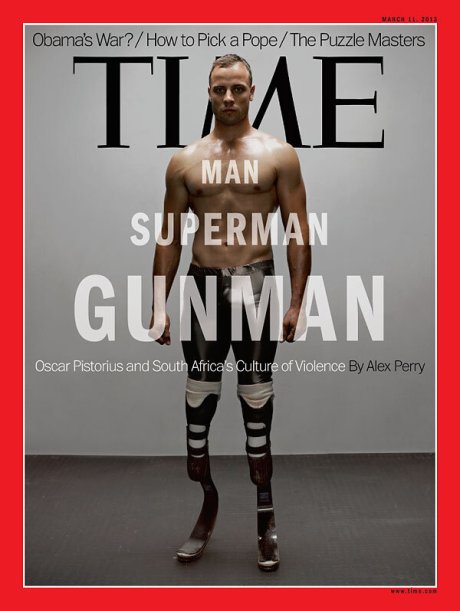There is a political zeitgeist brewing in South Africa.
Suddenly the social frailties still existent in this post-apartheid era are being put under the microscope. One too many high-profile crimes have exposed the depth of damage still woven into the fabric of the South African consciousness. And perhaps they are realising they are permitted a voice to demand something better.
We too are embracing a culpable sense of realisation that these are endemic problems that have been ignored for generations, and must take responsibility to stand alongside and support their campaigns for all realms of belated justice.
Because apartheid is over, politically, doesn’t mean that the stains of its legacy disappear with it. The celebrations and praise for the future-facing Rainbow Nation have made way to expose a hangover of issues – particularly with this uninspired ANC at the helm – that require political intervention.
Though South Africa is by no means alone in its imperfections, the disaffection displayed towards the intrinsic patriarchal culture: endemic rape, violence, police brutality, abuse of authority, apathy towards justice and condemnation… has lead them to a state of being whereby these extreme crimes are accepted as the unconquerable norm.
Sadly, it doesn’t take the biggest killing since the end of the apartheid era (Marikana massacre), nor the gang-rape and subsequent disembowelling of a 17-year-old girl (Anene Booysen), or a public display of unabashed police brutality to highlight the prevalence of violence, particularly towards women, in South Africa.
The tragic shooting of Reeva Steenkamp by her boyfriend, Oscar Pistorius, is what has sparked the extended media interest in the state and fate of SA’s crime and retribution system.
Ergo, their former poster-boy and national advocate has since become the singular face representing all the exposed wounds and shames of SA.

That is not to say the world did not acknowledge and condemn the impermissible nature of the Booysen attack, the mining massacre, a father raping his daughter. They did; we do. But it is not Booysen’s face, her alleged attackers (Jonathan Davids and Johannes Kana), Tshepiso Peter Malapane, or any of the slain/accused miners and SAPS being used by the media. The one face being used to personify, and unify, the unacceptable criminality in South Africa, is Oscar Pistorius.
He is used to being a metaphor: the Blade Runner, a Superhuman, and ‘the fastest man on no legs’ – to quote The Times this summer: “He is the poster boy of the Paralympics – and the athlete most likely to change our views on disability.”
His ability to transcend racial boundaries, to unite the hopes of his divided nation, to represent both able-bodied and disabled athletes – indeed able-bodied and disabled people – to be a model, a celebrity, and humanitarian as well as the more regular roles of brother, son and friend – well, it has made him the centre-point of a very diverse venn diagram.
And now he is the centre of a far less flattering, and as yet undeserved*, one. Now his face precedes debate on a foray of criminal topics: gun crime and gun ownership, violent crime, robberies, murder… and because Reeva was a proud representative of women’s rights, it also spills into the themes of patriarchy, rape, domestic violence and sexism.
While I welcome that there should be focus on addressing the prevalence of violence in society and implementing real solutions to the current attitudes – in society and in the law – I am deeply upset that Oscar is the one left carrying the burdens of his nation. And like Atlas, he’ll be carrying them indefinitely. When even the police and judicial systems are flawed and corrupt, what hope is there for the rest of society?
*His case is yet to go to trial and thus he is not yet deemed to be guilty of murder. He is not yet akin with his numerous imprisoned countrymen and shouldn’t have to represent their combined retribution, just because this contrived ‘fallen hero’ allegory is too easy for sloppy media-types not to scavenge on.
Oscar has always acknowledged and embraced that he has a predominant role to play is representing South Africa. I am sure this is not the portrayal he had in mind… And for the time being – ironically the time when it matters the most – it isn’t fully justified.
But, guilty or not, he will invariably represent gun crime, fear of crime, domestic violence, and murder. Even if his affidavit is 100% accurate, and he should be consoled instead of condemned; this epoch will be pinpointed for urging the desire for change, and will surely carry Oscar Pistorius’s new legacy along with it.

Pingback: A Fair Reflection? Oscar Pistorius & South Africa’s Hall of Mirrors | Pursuit of Nattiness
I am regular reader, how are you everybody? This article
posted at this website is truly good.
magnificent points altogether, you simply won a new reader.
What would you suggest about your post that you made a few days in
the past? Any sure?
Nice respond in return of this difficulty with solid arguments and describing all
on the topic of that.
These are truly enormous ideas in concerning blogging.
You have touched some good points here. Any way keep up wrinting.